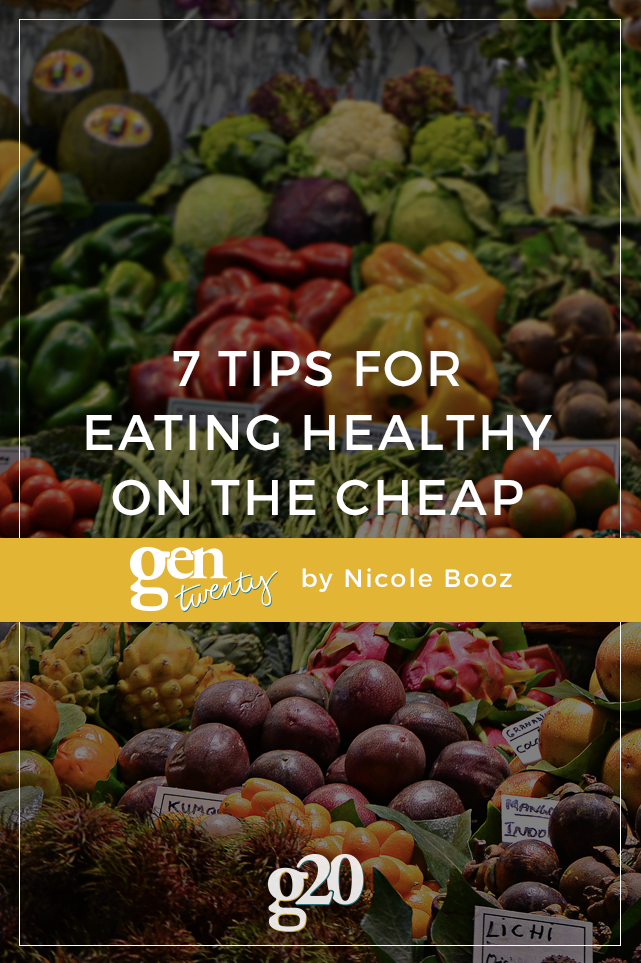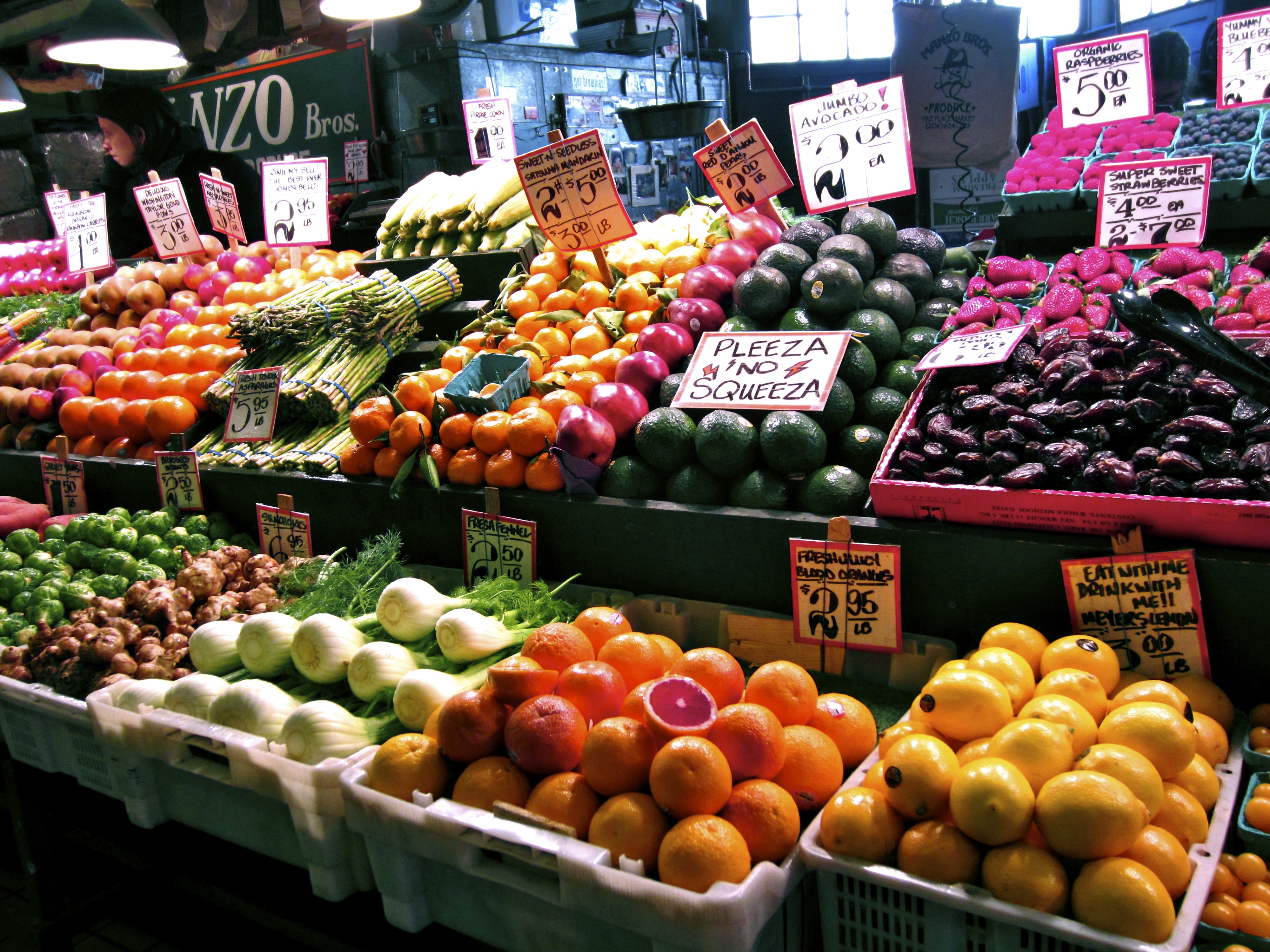Grocery shopping and cooking for yourself are parts of growing up that seem simple but have ways of becoming confusing.
While ramen noodles might have been a staple during your college years, it’s about that time to branch out and eat a healthier, more well-rounded diet.
By “healthy,” we mean getting those 5-7 servings of fruit and vegetables each day. But wait a second, fresh fruit costs how much?!
Like many of you, we have wasted a lot of time and money on food we didn’t eat and things we never should have bought in the first place (rest in peace, S’mores Pop-Tarts that were on sale for $1 and are now stale).
Keep reading for ways to keep your diet full of nutritious, filling foods without spending a mini-fortune:
7 Tips To Eat Healthy on the Cheap
1. Take inventory.
Don’t get caught purchasing several boxes of pasta only to realize you have a month’s worth waiting for you at home.
Before you hit the grocery store each week, glance through your cabinets to know what you know already have.
You can then build your meals around what’s stored in your fridge to avoid throwing away food (and money).
2. Plan your meals.
You don’t necessarily have to plan out every specific item on the dinner menu; however, you should make a general outline so that you know what you need.
For example, dinner will consist of a grain, a vegetable and a protein. From here, you can fill in what you want to have: quinoa, broccoli and chicken. Dinner’s served!
You can stretch things across several meals without repeating the same meal over and over. Quinoa is great in stuffed peppers, salad or stir fry. Get creative! Healthy and inexpensive are not mutually exclusive.
Free download — Meal Planning: What Is It and How Do I Do It?
3. Know before you go.
Seems simple enough, right? Yet, despite this, you might find yourself loading up your cart with things you never even planned to buy in the first place.
This step is easy once you’ve looked through what you already have and made your weekly meal plan.
You can easily jot down what you need to purchase for the week with a notepad or on apps such as EverNote.
When you get to the store, go straight for what’s on your list, don’t make any detours and don’t purchase anything next to the registers (you can do it!).

4. Buy in bulk.
We don’t mean rushing out and signing up for a Costco membership, but we do mean hitting up the bulk section of your local grocery store.
Whole Foods has a huge variety of things you can buy in bulk including nuts, spices, seeds, rice, beans, grains, flour and trail mix. For example, my typical breakfast of organic rolled oats costs only $0.80 each week.
By shopping this way, you can buy exactly what you need and for a good price. Check other grocery stores in your neighborhood if your usual one doesn’t have bulk options.
Related: The Twenty-Something’s Guide To Buying in Bulk
5. Buy what’s on sale.
Green apples, red apples, gala apples, oh my. While you likely have a preference, there really isn’t too much of a difference. Pick up the fruit or veggie that’s on sale and don’t look back.
Doing this will save you at least $5-$10 per trip to the grocery store between all of the fruits and vegetables you eat.

When the non-perishable items you eat often are on sale, pick up an extra box or two. As long as the expiration date isn’t in the foreseeable future, you’re safe saving the extra few bucks by purchasing extra while they are on sale.
6. Grow your own.
Herbs, such as basil, rosemary and thyme, are perfect meal enhancers. However, if you are buying bunches every week, they can get pricey.
Invest in an inexpensive herb gardento grow your own at home. If you’re feeling extra ambitious and have a green thumb, start your own mini garden in a window or on a balcony.
7. Shop locally.
Buying your fresh food locally not only stimulates the local economy and supports residents of your community, but it can also be a less expensive way for you to buy all of the fruits and vegetables you want.
Find your local farmer’s market and make friends with the vendors.
Not only will they have knowledge about what you’re eating but they might also give you a deal if you shop with them often and bring them business. Can you say, “winning?”
We know it’s hard living on a very limited budget, but by shopping consciously, you can actually have your carrots and eat them, too.
